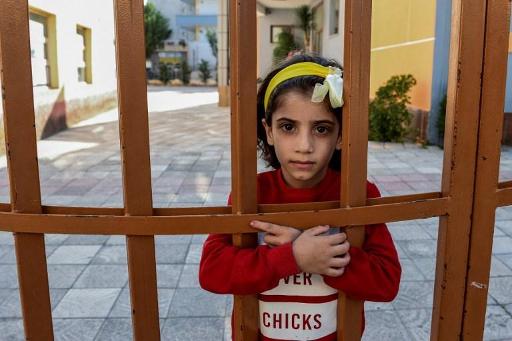Three United Nations agencies - the High Commission for Refugees (UNHCR), the Children's Fund (Unicef) and the International Organization for Migration (IOM) - launched an appeal on Wednesday for better schooling for migrants' and refugees' children living within European borders.
According to the UN, access to quality teaching and the pursuit of a school career will require more funding than that currently being allocated by European countries to their education systems. A lack of locations, adequately trained teachers, the language barrier and limited access to psychological support pose challenges to the establishment of better schooling for these minors.
This problem concerns around 2.1 million children (2.6% of minors living in the EU) born in a member state other than the one to which their parents emigrated, along with 3.4 million (4%) coming from a country outside EU borders. Nearly half of these minors are over 15. In Belgium, the number stands at 105,252 or 4% of the school population.
Some of them have never used school benches before in their country of origin, others blame educational underachievement or are traumatised after a sea crossing to reach Europe lasting several months. Migrant and refugee children are thus nearly twice as likely to leave school early than those born in the country where they are living.
In Belgium, nearly 20% of foreign minors effectively drop out, as against under 10% among the native population. Young children (3 to 5 years) and adolescents of 15 and over are particularly vulnerable because they are often not subject to national legislation in terms of obligatory schooling.
The UN is now calling on European governments to invest more in teaching, notably in remedial classes. In Belgium, there are not enough resources for reception classes (School reception facilities plan for newly-arrived migrants, Daspa), whereas those teaching the classes are not sufficiently trained and supported, the document published on Wednesday pointed out.
The length of this initial schooling (one year, which may be extended by six months) is furthermore unsuitable since some youngsters have simply to learn the language while others find themselves confronted by an education system that is completely alien.
"School is a place for learning but also a place to make friends and tend the wounds caused by exile. Many refugee children arriving in Belgium have experienced major traumas and still feel very alone at school," the UNHCR, Unicef and OIM, calling for dedicated psycho-social support, regretted. Migrant children effectively obtain inferior learning outcomes when they do not receive adequate support, the UN agencies emphasised.
Among the good practices, the document highlights the Flemish government's instigation, for a three-year period, of extra remedial classes and hours of learning for young persons from disadvantaged socio-economic environments.
"Education is not only essential for the future of refugee children, but also for the communities in which they live. Investing in education for all is one of the best investments a government can make," Pascale Moreau, head of UNHCR's Europe Bureau, concluded.
The Brussels Times

